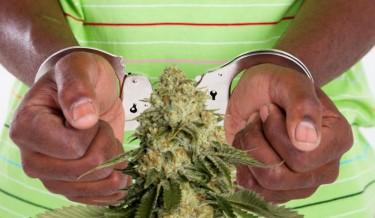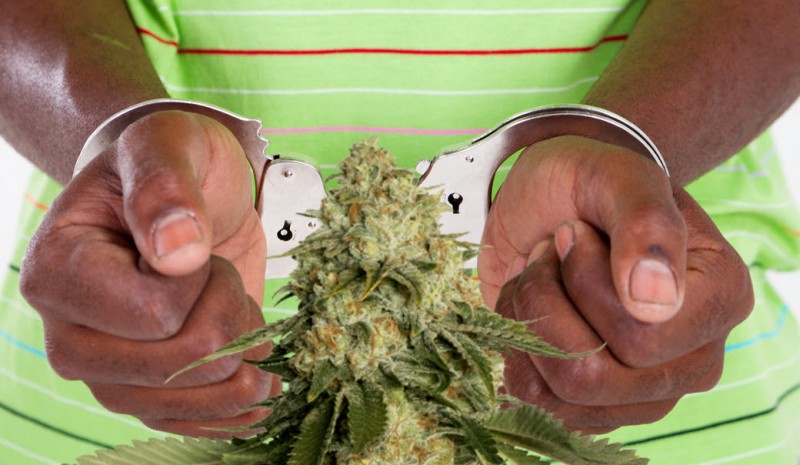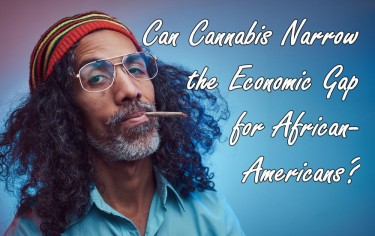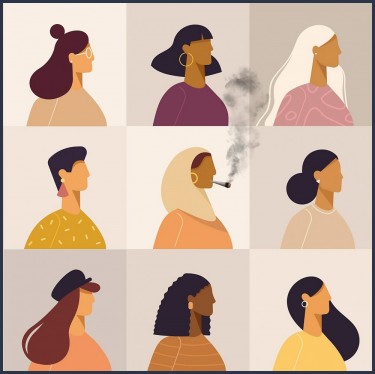Why are Black People Still Arrested at Higher Rates Than White People Post Marijuana Legalization?

If you know anything about the history of cannabis prohibition – you know it’s riddled with racism.
From the days of Anslinger where he came up with outlandish claims about the effects of cannabis on people of color, to the days of Nixon where he militarized the police and utilized drugs as a proxy for suppressing peaceful protest.
Over time, this translated into black Americans being arrested at roughly 3.5x the rate as White Americans. The same trends persisted with people of Latin decent.
It is often touted that in order to fight this inequality, the decriminalization of drugs, and in this specific case, the legalization of cannabis will help eliminate these racial disparities.
The problem is that after almost a decade of legal cannabis on the books – in Colorado – these racial disparities continue to exist according to a recently released report.
This begs the question; “What is happening that legalization is not affecting this racial trend” and more importantly, “What can be done to remedy this situation?”
Throughout the rest of this article, we’ll be attempting to discover the source of the racial disparities as well as what can be done to initiate concrete actions to reduce the instances of imbalanced arrest statistics.
Understanding that it isn’t “cannabis” that is causing the racial disparities
The first assumption we must address is that “cannabis” is the reason there are racial disparities. This is simply not true.
Cannabis is a tool the police used for decades to inflate their effectiveness against crime. Of course, when smoking cannabis is the crime, merely arresting a user creates a positive impact on arrest records [for the police].
This allows them to generate money for the municipality or state they are in the form of fines. A 2016 New Yorker Article outlines this perfectly;
Alexes Harris is an associate professor of sociology at the University of Washington and the author of “A Pound of Flesh.” Published in June, the book analyzes the rise of monetary sanctions in the criminal-justice system. Harris argues that jurisdictions have increasingly relied on levying fines for minor infractions—broken tail-lights, vagrancy, traffic violations—as a way to generate municipal revenue. For instance, a Department of Justice investigation revealed that, in 2013, police in Ferguson, Missouri, issued arrest warrants for nine thousand people, almost all for municipal-code violations such as failing to pay a fine or missing court appearances. Doing so allowed the city to collect $2.4 million in fines and fees, the second highest source of income for the city, behind taxes.
Revenue-generation policies trap poor people in a cycle of debt, but Harris argues that these policies can also create dangerous conditions for violent confrontations with law-enforcement officers. - SOURCE
These are minor infractions, with cannabis as a schedule I drug – the game changes even more. You can easily increase the prison population, doctor crime statistics, and of course – generate those municipal fees.
The reason why Black people are targeted relates to over-policing of black neighborhoods. Simply put, there are more police in these areas specifically looking for these types of infractions.
After Legalization, trends persist because of higher-density of police in black communities
The recent report from the Department of Public Safety in Colorado found that despite legalizing cannabis, black Coloradans are still more likely to get arrested.
According to the report, which is required by law every two years, the total number of marijuana arrests decreased by 68% between 2012 and 2019, from 13,225 to 4,290. The number of marijuana arrests decreased by 72% for white people, 63% for Black people and 55% for Hispanic people. - Source
The majority of the arrests is for possession.
Rep. Jennifer Bacon commented on this;
If we’ve done all of these things to equalize what we would call a crime around marijuana, and we’re still twice as likely to be arrested, that means there’s still something to be said about our perceived criminality,” said Bacon
Bacon is attempting to limit arrests and use of cash bail for people accused of committing low-level crimes due to the aforementioned reasons.
Of course, there was major pushback from law enforcement.
“Senate Bill 273 opponents were like, well police need discretion, and I’m like, this is what happens when you give them discretion,” she said, referencing the state marijuana report. “If we think police are going to solve their own problems, then we’re crazy because when we leave it to them we get these numbers.”
And this is partly a major problem with these racial disparities and can even be tied to current president Joe Biden with his 1995 Crime Bill that gave police far more power to do these kinds of atrocities. I won’t get into all the details about this because this point usually sparks a lot of debate.
Bacon also made a solid point in regards to these arrest statistics;
“If you’re going to create a whole bunch of laws that concentrate poverty and behaviors, and then you just park a police car there, you’re going to find what you’re looking for,” she said. “I always say, if you ever put a squad car in a college dorm the way you put it in certain neighborhoods, you would find just as much.”
In other words, it’s time we rethink the way we police society. What constitutes as a crime and what is merely a means of the police exploiting vulnerable populations.
Additionally, in order to curtail this racist trend – it is absolutely essential that the police do not have Qualified Immunity.
Qualified immunity is a judicially created doctrine that shields government officials from being held personally liable for constitutional violations—like the right to be free from excessive police force—for money damages under federal law so long as the officials did not violate “clearly established” law. - SOURCE
Interestingly enough, Qualified Immunity is a statute that was initially passed to fight the Ku Klux Klan. Now it’s a mechanism of racism.
As a result, the police has had “carte blanche” to steal, murder and oppress people without the means to defend themselves.
To tackle the racial disparity issue will require a major re-structuring of the police, establishing a civilian oversight committee that would “police” the police.
In the government, you have three branches of government to ensure that corruption doesn’t occur – perhaps it’s time we have similar systems in place to curtail these atrocious instances.
It’s not enough to protest, it’s not enough to “discipline” – it’s time the police get the same treatment as the rest of society. They should be held liable for their actions. Communities of color deserve to feel safe and not hunted by the police and most importantly of all – It’s time to end the persecution of “non-crimes” such as arresting people for simple possession.
MARIJUANA AND AFRICAN AMERICANS, READ MORE..
CAN CANNABIS CLOSE THE ECONOMIC GAP FOR AFRICAN AMERICANS?
OR..
CANNABIS MOMS OF COLOR MAKING A DIFFERENCE IN THE WEED INDUSTRY!







